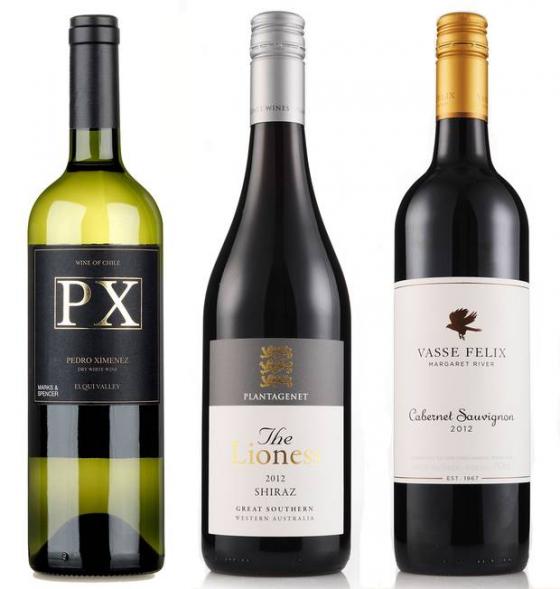By The Book: Oz Clarke's 100 Bottles
POSTED ON 08/08/2015As a communicator who’s spent a lifetime making wine entertaining, Oz Clarke takes us on an unapologetically personal romp through many of the most significant moments in wine in The History of Wine in 100 Bottles (£20, Pavilion). Every bottle drained tells stories of ‘the politics, the science, the empire-building and the wars, the lucky mistakes, the brilliant guesses, the leaps in the dark and the human frailties that have created our world of wine’.
‘Do you think it’s important to celebrate the first White Zinfandel of Liebfraumilch or bag-in-box?” Yes, he says, because ‘the eccentric, the bombastic and the mundane’ have all in their own way contributed to enriching our culture. Few critics manage that tightrope between heartfelt praise of the popular and derision of the lowest common denominator. In communicating his genuine enjoyment of Gallo’s Heart Burgundy or Montana Marlborough Sauvignon Blanc, Clarke demonstrates that a discerning palate doesn’t have to mean wine snob.
Flavour and history are conjoined on his time travels. After a wham-bam tour of the clay pots of Georgia and amphorae of the Egyptian and Roman empires, Oz bar-crawls Pompeii,’s ‘rowdy drinking joints…so well preserved that you can taste the wine, smell the food and hear the gossip even now’. We learn how monks kept ‘the flickering flame of culture alive in the silent halls of Europe’s monasteries’; how Christopher Merret made fizz 30 years before Dom Pérignon is supposed to have worked out how to make wine sparkle. We re-live Napoleons’ obsession with the Cape’s fragrant sweet Constantia and discover how Hock got its name from Queen Victoria and Albert’s visit to Hochheim in 1845.
Contrasting the destructive influences of Prohibition in America, the blood vintages of Champagne, Göring’s greedy appropriation of the finest French wines, the fraudster Rudy Kurniawan, Clarke does justice to the towering figures whose achievements have enhanced our appreciation of wine: Louis Pasteur for his work on preserving wine; Emile Peynaud who modernised Bordeaux; Max Schubert for laying the foundations of Australian fine wine with Penfolds Grange; Robert Mondavi and the re-birth of Napa; Mario Incisa della Rochetta’s Sassicaia and the birth of the Supertuscan; Steven Spurrier and the 1976 Judgment of Paris tasting; the American super-critic, Robert Parker.
We breeze though modern trends and phenomena: the new era of Bordeaux; the global domination of cabernet sauvignon; the flying winemakers who ‘introduced the future to places stuck in the past’; international consultants such as Michel Rolland and their alchemy; Nyetimber and the English Sparkling Wine revolution; and accidental phenomena such as Beaujolais Nouveau and California blush wine. Never short of an opinion, Clarke goes on an occasional mini-rant: on Champagne’s bullying tendency, the ayatollahs of natural wine, the negative side of Robert Parker’s influence. 100 more bottles, please, Oz.
 Something for the Weekend
Something for the Weekend
Night In
2014 PX, Elqui Valley, Chile.
A smooth operator, this Chilean dry white made from the Pedro Ximenez grape is like a ripe white Bordeaux blend with a herby lemony cream freshness combined with passion fruit, finishing with an appley twist. £7.99, Marks & Spencer.
Dinner Party
2012 The Lioness Shiraz
Aromatic notes of smoky oak and black fruits develop into a red of satisfying succulence and flavours of blueberry and plum tempered by a telltale touch of cool climate spiciness and pepper. £8.99, down from £9.99, until 11 August The Co-operative.
Splash Out
2012 Vasse Felix Cabernet Sauvignon, Margaret River
The cassis richness of this classic Bordeaux-style blend is tinged with aromatic fresh mintiness while the opulently chocolatey, smooth textured fruit is underpinned by subtle spicy oak and focused by a firm grip and savoury finish. £23.99, Waitrose.

